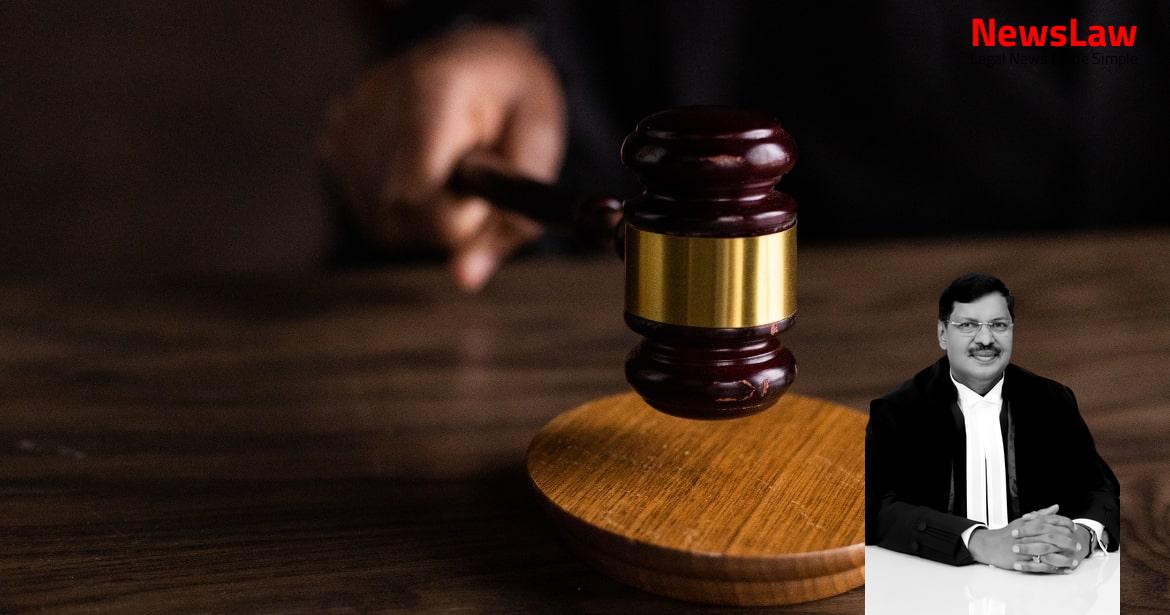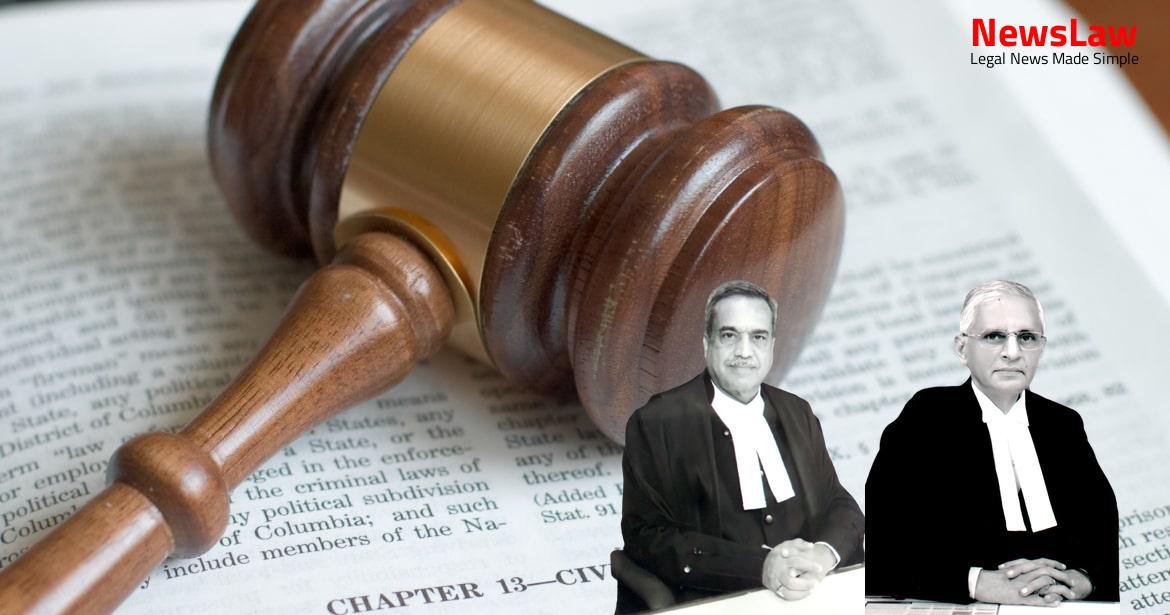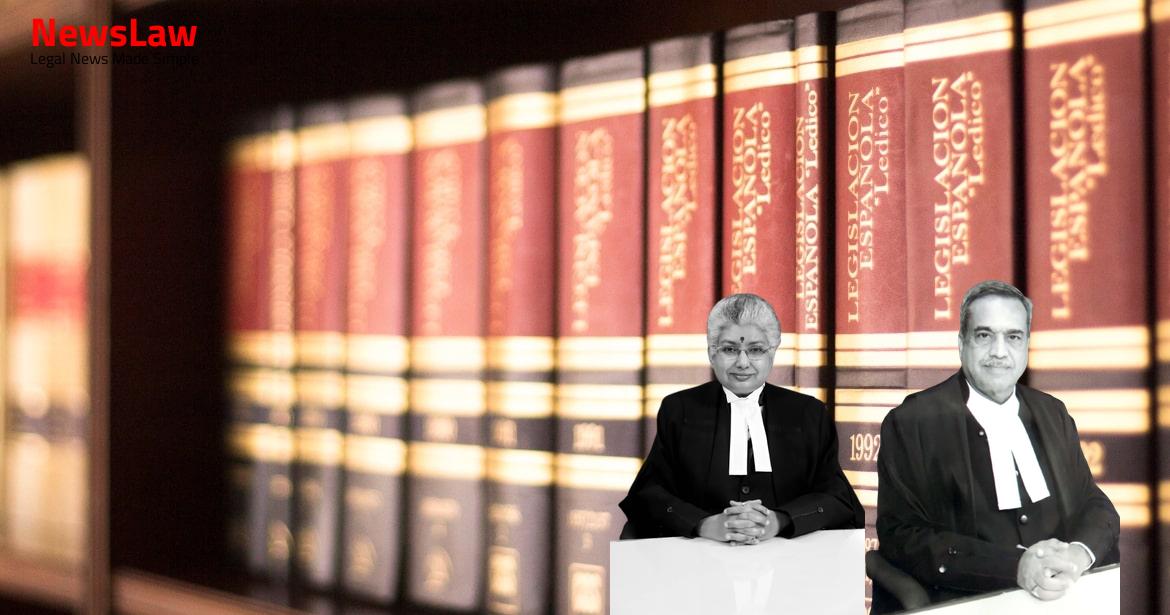Explore a detailed legal analysis focusing on compliance with minimum standards in medical education. The recent judgment sheds light on the statutory provisions of the Indian Medicine Central Council Act, 1970, emphasizing the critical role of meeting minimum standards for infrastructure and education facilities in medical colleges. Discover the implications of failing to obtain permission for new establishments or changes in admission capacity, and the importance of adhering to regulations for maintaining quality education in Indian systems of medicine.
Facts
- Respondent No.1 was denied permission to admit students to Post Graduate courses in 2018-19 due to deficiencies in facilities.
- Permission was granted for Under Graduate (BAMS) Course with conditions.
- Permission was given in 2014-15 to start Post Graduate Ayurvedic disciplines as per 2012 Regulations.
- Facility inspections were conducted in 2018 based on 2016 Regulations.
- Collaboration with another institution allowed for the required Animal House.
- Writ petition and subsequent appeals were filed regarding permission.
- The Division Bench upheld the permission for subsequent years benefiting previous years.
- The appellant approached the Court for further appeals.
- The 2016 Regulations required possession of a Central Research Laboratory and an Animal House.
- ASG confirmed that students admitted for 2018-19 will not be disturbed.
- Consideration of the legal questions was requested by the ASG.
- Leave was granted for all Special Leave Petitions.
- Judgment dated 21 December 2020 by the Division Bench dismissed writ appeals by the Central Council for Indian Medicine.
- The appeals were challenging the order dated 24 September 2020 passed by the Single Judge in Writ Petition No. 50772 of 2018.
- The Writ Petition was filed by Karnataka Ayurveda Medical College.
- Judgment dated 24 September 2020 by the Single Judge allowed Writ Petition Nos. 50828 of 2018 and 50772 of 2018 filed by Karnataka Ayurveda Medical College.
Also Read: Presumption of Genuine Endorsements in Cheque Case
Arguments
- 2016 Regulations were made under Indian Medicine Central Council Act, 1970 with the sanction of the Central Government.
- Institutions must possess required minimum standards to be entitled for permission.
- Minimum standards must be fulfilled for the specific academic year for permission to be granted.
- Deficiencies in previous academic years cannot be overlooked even if requirements are met in subsequent years.
- High Court’s view on permission for previous academic years based on subsequent year’s compliance is incorrect.
- Failure to apply a relevant judgment leads to the judgment and order of the High Court being challenged.
- Shri Deshpande, representing respondent No.1, argued in favor of the view taken by the Division Bench of the High Court of Karnataka.
- He mentioned that the Division Bench’s view was in line with its earlier judgment.
- No interference in the present appeal was deemed necessary by Shri Deshpande.
- Smt. Divan, representing the Union of India, also supported the arguments made by the present appellant.
Also Read: Medical Negligence and Compensation: A Landmark Decision
Analysis
- The judgment analyzed various provisions of the Indian Medicine Central Council Act, 1970, specifically focusing on Sections 13A, 13B, and 36(1)(j).
- It highlighted the detailed procedure prescribed for submitting a scheme and obtaining permission from the Central Council and Government.
- The judgment emphasized the importance of meeting minimum standards for infrastructure and education facilities before seeking permission for admissions in the upcoming academic session.
- It pointed out the erroneous interpretation that permission for a subsequent academic year automatically applies to earlier years, even if minimum standards were not met.
- The legislative intent behind the Act was discussed, emphasizing the need for a statutory Central Council to regulate Indian systems of medicine.
- The role of the Central Government in granting permission for establishing new medical colleges or courses of study was underscored.
- The implications of the 2003 amendment to the Act, which allowed existing colleges three years to rectify deficiencies, were also explored.
- The judgment criticized the High Court for not considering the statutory scheme outlined in Section 13A of the Act and not adhering to the precedent set by the Ayurved Shastra Seva Mandal case.
- The examination revealed that no medical college can initiate new courses without prior permission, as outlined by the Central Government.
- The significance of seeking permission within a stipulated time frame post the Act’s amendment was highlighted.
- The judgment highlighted the powers reserved for Parliament to modify regulations and reiterated the importance of meeting minimum standards for medical education.
- The requirement for maintaining the standards up to the specified date each year for admissions was reiterated to ensure quality education in Indian systems of medicine.
- Section 13A of the Indian Medicine Central Council Act, 1970, regulates the establishment of new medical colleges, new courses of study, and increasing admission capacity in existing medical colleges.
- No person or medical college can establish a medical college, open new courses, or increase admission capacity without prior permission from the Central Government.
- The Central Council and the Central Government must consider factors like minimum standards of medical education, financial resources, necessary facilities, and manpower requirements while granting permissions.
- Failure to seek permission for new establishments or changes in admission capacity may result in the medical qualifications not being recognized under the Act.
- The Central Council is empowered to make regulations, with the sanction of the Central Government, to carry out the purposes of the Act, including setting standards for education and facilities in Indian medicine.
- Any scheme submitted for permission must be reviewed within a specified time period, and if no response is received, it is deemed to be approved.
- Non-recognition of medical qualifications applies to situations where permissions are not obtained for establishment, new courses, or increased admission capacity.
- Committees are in place to monitor the efficacy of regulations and recommend amendments to ensure compliance with standards of medical education.
- The Court referred to the amended provisions of the Ayurved Shastra Seva Mandal Act.
- The case of Ayurved Shastra Seva Mandal was mentioned in relation to the amendments of the Act.
- Council insisted upon minimum standards to be achieved by colleges gradually.
- Institutions showed little response to address deficiencies until notices were given to shut them down.
- Institutions approached courts only after the threat of shutdown.
- Courts allowed institutions to accept admission forms but not pass orders until a decision was made by this Court.
- Single Judge and Division Bench overlooked the scheme of the Act and the precedent set by Ayurved Shastra Seva Mandal case.
Also Read: Remand of Writ Petition for Restoration and Decision on Merits
Decision
- The High Court has dismissed the writ petitions filed by the original writ petitioners.
- No costs are imposed in this dismissal.
- Pending applications will be disposed of accordingly.
- The judgments and orders of the Division Bench dated 21 December 2020 and the Single Judge dated 24 September 2020 are quashed and set aside.
Case Title: CENTRAL COUNCIL FOR INDIAN MEDICINE Vs. KARNATAKA AYURVEDA MEDICAL COLLEGE (2022 INSC 416)
Case Number: C.A. No.-002892-002892 / 2022



